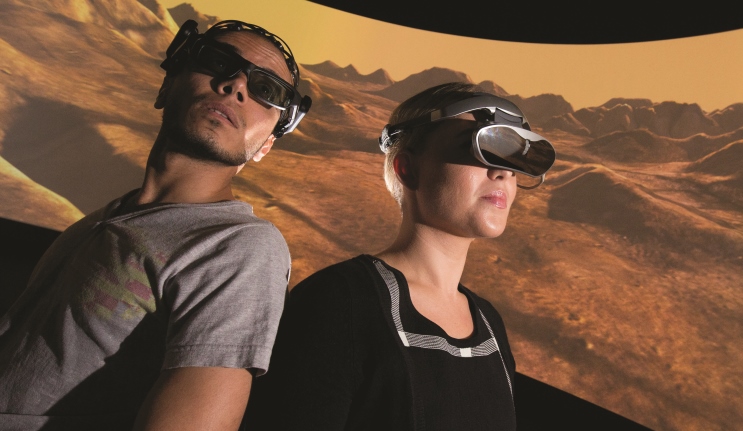
UNIVERSITY NEWS
Life, simulated
A quick glance at accident statistics tells a grim story – alcohol or drugs and driving or any other skilled activity don’t mix.
But while the relationship between drug or alcohol consumption and impaired performance is well known, until now, researching this relationship has been difficult: giving someone a stiff drink and putting them behind the wheel of a car crosses ethical boundaries.
Now with the launch of Macquarie’s world-first integrated Simulation Hub in February 2015, researchers will be able to see just what happens to drivers affected by prescription drugs or alcohol. They will also be able to explore the interaction of different drugs on users and their ability to undertake complex tasks, all in the safety of a lab environment.
It’s just one of many Simulation Hub initiatives that will have real impact in the lives of people far beyond the University campus, and transform our understanding of important health issues.
“Simulation gives us control over the environment we’re presenting to learners, and the Simulation Hub allows us to simulate almost any environment,” explains organisational psychologist and Director of the Simulation Hub, Professor Mark Wiggins.
“For instance, we can look at disruptive classrooms where we can see how children learn, or archaeological sites where we can teach new archaeologists what to look for in testing or confirming their theories,” he explains. “Working with companies like Cochlear Ltd, we can investigate when [hearing] devices are more or less effective and offer some solutions to improve the devices into the future.
Diverse applications
Developing the $3.5 million facility, which also features a simulated bar environment, a virtual reality space, flight simulator, car and train driving simulators, a sport and movement lab, rooms in a simulated home, and a therapist’s office, involved the cooperation and support of many parts of the University.
“Academics and students from disciplines including psychology, computer science, anthropology, physiotherapy, music, media, engineering, marketing, ancient and modern history, education and medicine will be involved in various projects that are planned for the Simulation Hub.”
It will also create opportunities for new partnerships with business and industry.
“We have industry partnerships that look at cognitive skill acquisition among train drivers and pilots and how they make decisions in complex, time-critical situations. Simulators provide a near-to-real environment to examine the acquisition of these skills,” Wiggins adds.
Orthopaedic surgeons at Macquarie University Hospital will be integrating aspects of the sports and movement simulator into their care management plans for patients, while audiologists from the Speech and Hearing Clinic can test hearing under different conditions from driving, to flying, to the sports field.
“Being able to integrate so many different disciplines and bring together departments from across so many sectors of the University to create this Hub is something that I think could only have happened at Macquarie,” he adds.